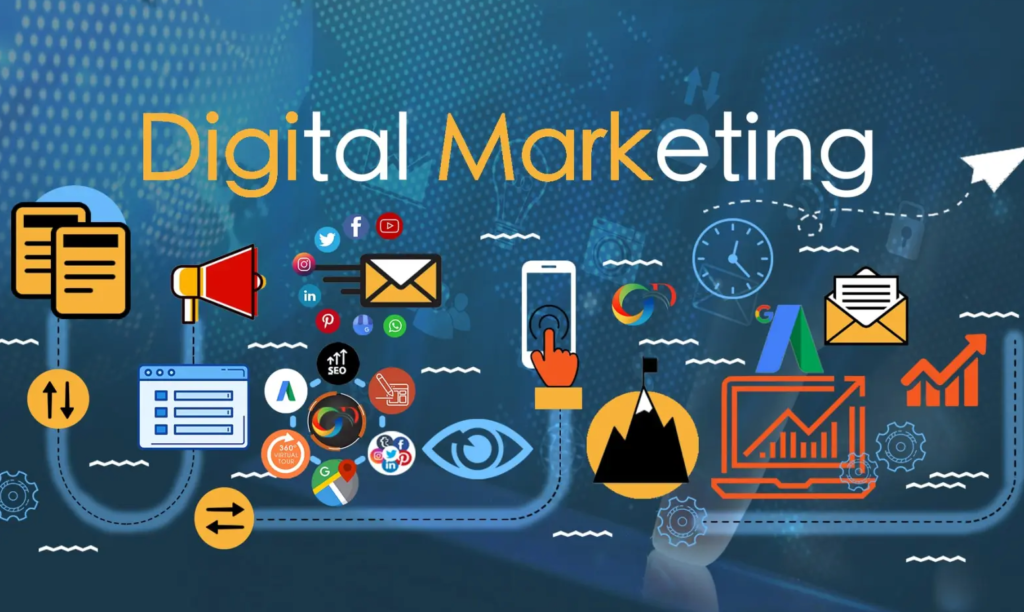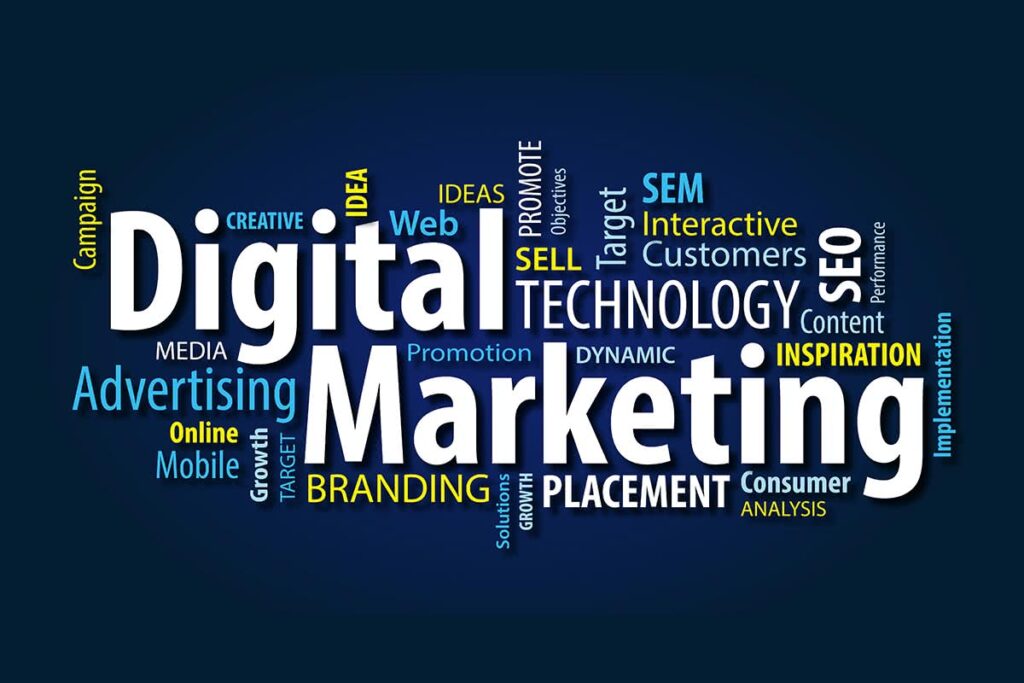Effective expert digital marketing services drive revenue through five core pillars: strategic SEO, data-driven paid advertising, engaging content marketing, conversion-focused website optimization, and targeted social media campaigns. These pillars work together to create a comprehensive digital ecosystem that attracts qualified prospects, nurtures leads through personalized journeys, and converts visitors into customers. When implemented with clear measurement frameworks, these services typically deliver 20-30% improvements in conversion rates, 15-25% reductions in customer acquisition costs, and measurable revenue growth within 3-6 months.
Recent industry research shows that businesses implementing integrated digital marketing strategies across multiple channels experience 3x higher revenue growth compared to those using single-channel approaches. Additionally, companies leveraging data-driven optimization across these pillars report 23% higher marketing ROI than those using more intuitive methods.
The Five Core Pillars of Revenue-Driving Digital Marketing
Each pillar of expert digital marketing services serves a specific function in the revenue generation process:
| Pillar | Primary Function | Revenue Impact | Implementation Timeframe |
|---|---|---|---|
| Strategic SEO | Attract qualified organic traffic | Medium-High (Long-term) | 4-6 months |
| Paid Advertising | Drive immediate targeted traffic | High (Immediate) | 1-4 weeks |
| Content Marketing | Nurture leads and build authority | Medium (Medium-term) | 2-4 months |
| Website Optimization | Improve conversion rates | Very High (Ongoing) | 1-3 months |
| Social Media Marketing | Build awareness and engagement | Low-Medium (Long-term) | 3-6 months |
Strategic SEO for Sustainable Traffic
Strategic SEO establishes the foundation for long-term organic traffic growth through:
| SEO Component | Function | Revenue Connection | Implementation Complexity |
|---|---|---|---|
| Technical SEO | Ensure proper site crawling and indexing | Indirect (enables visibility) | Medium-High |
| On-Page Optimization | Improve relevance for target keywords | Direct (attracts qualified traffic) | Medium |
| Content Strategy | Address user search intent | Direct (engages prospects) | Medium-High |
| Link Building | Build domain authority | Indirect (improves rankings) | High |
| Local SEO | Target nearby customers | Direct (drives local business) | Medium |
The most effective SEO strategies now prioritize user intent and content quality over technical manipulation, with top-performing businesses seeing 38% higher conversion rates from organic traffic.
Bonus Tip: Implement schema markup for your specific business type to enhance search visibility through rich snippets, which typically increase click-through rates by 30-50%.
Data-Driven Paid Advertising
Effective paid advertising creates immediate visibility and traffic while gathering valuable data:
- Strategic Channel Selection: Choosing platforms based on audience presence and intent
- Audience Targeting: Leveraging first and third-party data for precise targeting
- Creative Optimization: Testing multiple ad variations to improve performance
- Landing Page Alignment: Ensuring ad messages match destination pages
- Conversion Tracking: Measuring specific business outcomes from ad traffic
Businesses implementing advanced attribution modeling for paid advertising typically achieve 20-30% higher ROAS (Return on Ad Spend) by optimizing based on the full customer journey rather than last-click attribution.
Content Marketing for Lead Nurturing
Content marketing supports the entire customer journey from awareness to decision:
| Content Type | Customer Journey Stage | Lead Nurturing Function | ROI Measurement |
|---|---|---|---|
| Blog Articles | Awareness | Educate on problems and solutions | Traffic, Time on Page |
| Whitepapers/Guides | Consideration | Demonstrate expertise and value | Lead Generation |
| Case Studies | Decision | Provide proof of results | Conversion Rate |
| Email Sequences | Nurturing | Guide prospects through journey | Engagement, Conversion |
| Video Content | Multiple Stages | Engage and explain complex topics | Engagement, Sharing |
Companies consistently producing high-quality content across multiple formats generate 7.8x more site traffic and 3x more leads than those with inconsistent content strategies.
Bonus Tip: Develop content clusters around high-value keywords to establish topical authority, which typically results in 30% higher search visibility for target topics.
Conversion-Focused Website Optimization
Website optimization directly impacts revenue by improving conversion rates:
| Optimization Area | Revenue Impact | Testing Method | Implementation Priority |
|---|---|---|---|
| Page Speed | High | Core Web Vitals Analysis | Very High |
| Mobile Experience | Very High | Mobile Usability Testing | Very High |
| Call-to-Action Elements | High | A/B Testing | High |
| Form Design | Medium-High | Form Analytics | Medium |
| User Path Optimization | Medium | Heatmap Analysis | Medium |
| Trust Elements | Medium | User Testing | Medium |
Businesses implementing systematic conversion rate optimization (CRO) programs see an average 223% ROI on their CRO investments through increased conversion without additional traffic costs.
Targeted Social Media Marketing
Effective social media marketing builds brand awareness and engagement:
- Platform Selection: Focusing on channels where target audiences are most active
- Content Strategy: Developing platform-specific content that resonates with audiences
- Community Building: Creating engagement and two-way communication
- Paid Amplification: Strategically boosting high-performing organic content
- Social Listening: Gathering audience insights for broader marketing strategy
Businesses that integrate social media data with other marketing channels report 89% higher customer retention rates and 58% increased revenue per customer.
Integration Framework for Maximum Revenue Impact
The true power of expert digital marketing services comes from their integration:
| Integration Method | Purpose | Revenue Effect | Implementation Challenge |
|---|---|---|---|
| Cross-Channel Attribution | Understand channel contributions | Optimized budget allocation | High |
| Unified Customer Data | Create consistent experiences | Improved personalization | Medium-High |
| Automation Workflows | Trigger timely communications | Increased conversion rate | Medium |
| Analytics Integration | Holistic performance views | Better decision-making | Medium |
| Testing Framework | Continuous improvement | Compounding growth | Medium |

Things to Consider Before Selecting Digital Marketing Services
Before engaging digital marketing services, evaluate these critical factors:
- Business Goal Alignment: Ensure the services directly support your specific revenue objectives.
- Measurement Framework: Confirm clear processes for tracking and reporting on revenue impact.
- Channel Integration: Verify that the approach connects multiple channels rather than treating them as silos.
- Industry Expertise: Assess familiarity with your specific market dynamics and customer behaviors.
- Technology Stack: Evaluate compatibility with your existing marketing technology infrastructure.
- Team Expertise: Confirm specialist expertise in each core pillar rather than generalists only.
Common Digital Marketing Implementation Challenges
Businesses often encounter these obstacles when implementing digital marketing strategies:
- Attribution Complexity: Difficulty accurately tracking customer journeys across multiple touchpoints
- Content Production Bottlenecks: Challenges creating sufficient high-quality content
- Data Silos: Disconnected information across marketing platforms
- Budget Allocation: Determining optimal spending across channels
- Technology Integration: Connecting various marketing platforms into a cohesive system
FAQ About Expert Digital Marketing Services
How quickly can digital marketing services impact revenue?
The timeline varies by channel: paid advertising can drive immediate results (1-4 weeks), conversion rate optimization shows impact in 1-3 months, while SEO and content marketing typically require 3-6 months for significant revenue impact. A comprehensive strategy delivers incremental improvements starting in the first month with substantial growth by month 6.
What investment level is typically required for effective digital marketing?
Effective digital marketing services for small to mid-sized businesses typically require $2,500-$10,000 monthly, depending on industry competition, market size, and growth goals. Enterprise-level programs may require $15,000-$50,000+ monthly to drive significant revenue impact across multiple channels and markets.
How are digital marketing services typically structured?
Digital marketing services are commonly structured as either comprehensive programs covering all pillars or specialized services focusing on specific channels. Pricing models include monthly retainers (most common), project-based fees, performance-based compensation, or hybrid approaches combining retainers with performance incentives.
How do digital marketing services adapt to changing market conditions?
Effective digital marketing services incorporate regular performance reviews (typically bi-weekly or monthly) with agile adjustment processes that reallocate resources based on performance data. This approach allows for quick pivots when market conditions change, algorithm updates occur, or new opportunities emerge.
What internal resources should complement external digital marketing services?
Most businesses need at least one internal marketing coordinator who can provide brand guidance, approve content, and serve as the primary point of contact. Larger organizations benefit from internal specialists who collaborate with external experts, particularly in areas requiring deep company knowledge like product marketing or industry-specific content development.
Ready to Drive Revenue Through Strategic Digital Marketing?
Expert digital marketing services drive measurable revenue growth by implementing integrated strategies across multiple channels. By focusing on the five core pillars—SEO, paid advertising, content marketing, website optimization, and social media—businesses can create sustainable digital ecosystems that continuously attract, engage, and convert customers.
For organizations looking to enhance their digital marketing effectiveness, seek specialists who understand how to integrate these pillars into a cohesive strategy aligned with your specific business goals and revenue targets.
Contact Plant Powered Marketing at (360) 519-5100 or plantpoweredmarketing@gmail.com to discuss your digital marketing needs.

Reviewer:
James Anderson has 7 years of experience in digital marketing. James reviewed this article and shared practical advice to help small businesses enhance their online presence and attract more customers.

















































